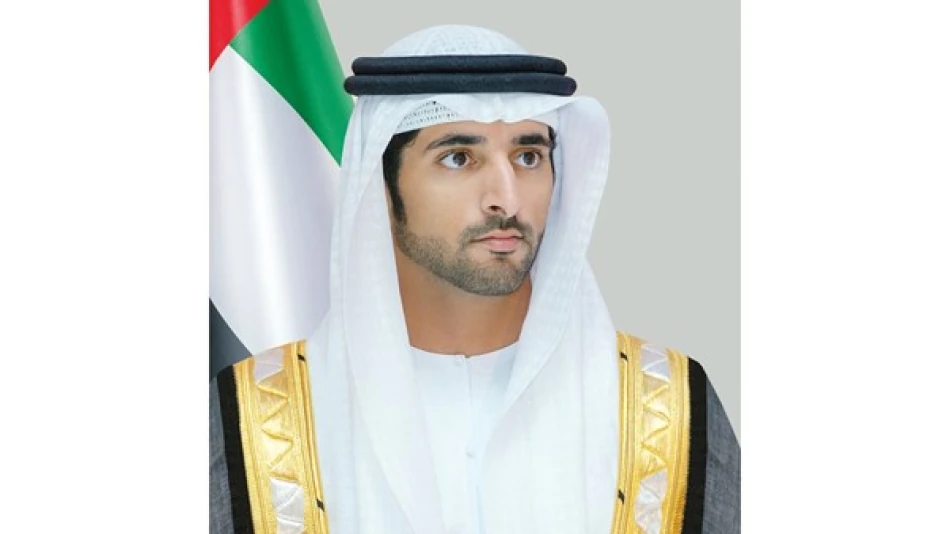
Sheikh Hamdan Launches 'Mohammed bin Rashid Leadership Award' to Recognize Exceptional Leaders
Dubai's Crown Prince Sheikh Hamdan bin Mohammed has launched the "Mohammed bin Rashid Leadership Medal," a new annual award recognizing Dubai officials who excel at developing second-tier leaders across different sectors. The medal was unveiled during the Mohammed bin Rashid Leaders Forum, bringing together 1,000 top government and private sector leaders to discuss the future of management and leadership in the emirate.
The award goes to one government leader each year who has effectively prepared new generations of young leaders. Winners must show they've built confidence within their teams, motivated employees to reach their potential, and created high levels of performance and creativity. But here's what makes this interesting - the medal specifically rewards those who've made empowerment a core part of their organization's culture.
Sheikh Hamdan explained the thinking behind the award: "The greatest joy for Sheikh Mohammed bin Rashid is to see an official who develops leaders, empowers them, and celebrates their efforts. He taught us that a true leader's success is measured by their ability to prepare leaders capable of continuing the journey of building and achievement."
The medal reflects Sheikh Mohammed bin Rashid's philosophy that developing people represents the greatest investment in any development journey. It's based on the idea that leadership isn't just a position or title, but a responsibility centered on creating new generations of leaders.
The selection process focuses on specific criteria related to empowering, motivating, training, and highlighting young leaders within government entities. Candidates are evaluated on how well they follow Sheikh Mohammed's approach to leadership development.
The initiative aims to build systematic leadership empowerment across every institution through clear plans and standards. Dubai wants its government to become a global model for developing leaders, using indicators and standards that compare with the best international practices.
The program also focuses on giving emerging leaders full authority to manage priority files, involving them early in decision-making, and assigning them strategic tasks that prepare them for future challenges. The goal is to spotlight and spread successful institutional practices by highlighting organizations that have made significant progress in empowering their leaders.
For Dubai's government, this represents more than just recognition. The emirate is positioning itself as a leader factory, where empowerment becomes an integral part of institutional identity rather than something tied to specific individuals or departments. Sheikh Hamdan emphasized this vision: "Dubai will remain a factory for leaders and a beacon of empowerment for the future."
Most Viewed News

 Layla Al Mansoori
Layla Al Mansoori






